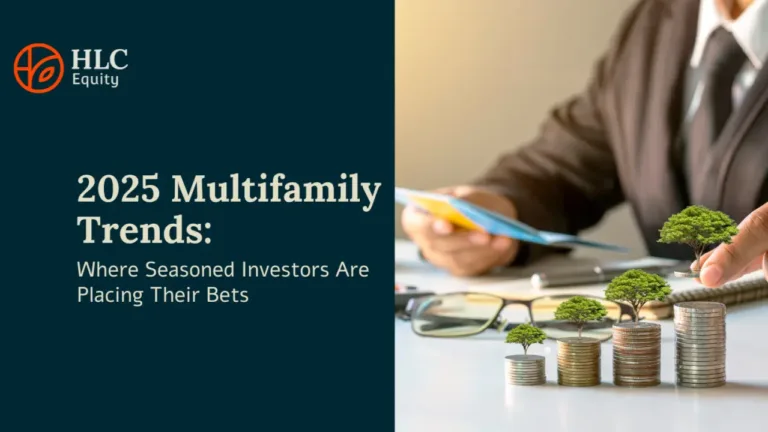
Entrepreneurialism is the driving force that ensures continuous growth, innovation, and adaptability in any business. Within the context of a family enterprise, this spirit plays a pivotal role in maintaining not only business success but also the long-term sustainability of the family’s involvement in the company. However, while many family businesses are founded on the strength of entrepreneurial vision, this drive can wane over generations as the business becomes more established, often leading to stagnation. Preserving and cultivating the entrepreneurial mindset is essential to ensuring the family business remains agile and future-focused.
Daniel Farber, CEO of HLC Equity, explains the importance of entrepreneurialism in family businesses: “At its core, entrepreneurialism in a family enterprise ensures long-term sustainability. It allows family members to take ownership, innovate, and contribute fresh ideas that help the business evolve with the times.”
Entrepreneurialism involves fostering a culture that supports creativity, learning, and varying levels of calculated risk taking. It thrives in an environment where autonomy is promoted, where creative ideas can be explored, and where continuous learning is encouraged. In this article, we will explore in greater depth how these elements are crucial to sustaining an entrepreneurial culture within a family enterprise and the practical steps family businesses can take to nurture this culture.
The Essence of Entrepreneurialism in a Family Business
Before diving into specific strategies, it’s essential to understand what entrepreneurialism truly means within a family business. Entrepreneurialism isn’t just about starting new businesses or generating profit—it’s about developing a mindset that embraces opportunity, innovation, and a willingness to challenge the status quo. Family enterprises are unique in that they often balance long-standing traditions with the need to remain relevant in a rapidly changing business environment. Therefore, entrepreneurialism in this context involves both protecting the family’s values and long-term vision, while also staying open to new ideas and ways of doing business.
Family businesses, particularly those that span generations and may have an active family office, have the advantage of a long-term perspective. This can be a double-edged sword. On one hand, their stability and commitment to future generations give them the ability to make thoughtful, long-term investments. On the other hand, this same stability can lead to complacency, with family members reluctant to take the risks necessary for innovation. Therefore, instilling and maintaining an entrepreneurial mindset is crucial to sustaining both the business and the family’s involvement.
1. Encourage Autonomy: Creating Space for Innovation
Autonomy is at the heart of entrepreneurialism. To foster innovation within a family business, family members and employees must feel empowered to take ownership of their roles and responsibilities. When individuals have the freedom to make decisions, they’re more likely to explore new opportunities, experiment with new ideas, and take the calculated risks necessary to innovate.
Autonomy in Decision-Making:
One of the challenges family businesses often face is that decision-making can become too centralized, with senior family members retaining control over even minor decisions. While this ensures consistency, it can stifle innovation. By encouraging family members and non-family employees to make decisions in their areas of responsibility, businesses can create an environment where innovation is more likely to occur. This doesn’t mean abandoning oversight; rather, it means setting clear parameters within which individuals can operate, providing them with the confidence to experiment without fear of failure.
Research from the Harvard Business Review shows that companies that allow for autonomous decision-making at multiple levels often outperform more rigidly structured companies. Autonomy encourages employees to take initiative, which often leads to the discovery of new growth opportunities. In a family enterprise, autonomy can be fostered through clearly defined roles and responsibilities, giving individuals the authority to innovate within those boundaries.
Case Study: Patagonia’s Approach to Autonomy
A great example of autonomy in a family-run business is Patagonia, a company known for its environmental advocacy and innovative business model. Founded by Yvon Chouinard, Patagonia operates with a high level of trust in its employees. Chouinard encourages his staff to take initiative and be creative in solving problems. This culture of autonomy has allowed Patagonia to become a leader in sustainability, pioneering new products and practices that have revolutionized the outdoor gear industry. The company’s success is rooted in its ability to foster innovation through autonomy.

2.) Embrace Creativity and Experimentation: The Heart of Innovation
Creativity and experimentation are vital components of entrepreneurialism. Innovation cannot occur in a vacuum—there must be an environment that encourages individuals to think outside the box, explore new ideas, and experiment with new approaches. For family enterprises, this often involves finding the balance between preserving tradition and embracing new ways of doing business.
Fostering a Culture of Creativity
At HLC Equity, creativity is cultivated through open dialogues, brainstorming sessions, and periodic off-site meetings designed to inspire new perspectives. These initiatives create a space where ideas are welcomed and evaluated based on their potential, rather than dismissed due to tradition or fear of failure. This kind of environment encourages innovation by allowing individuals to feel safe taking creative risks.
Creative thinking should be woven into the fabric of the family enterprise, with an emphasis on collaboration between family members and non-family employees. Regular meetings, cross-departmental brainstorming sessions, and a culture that values diversity of thought are all ways to embed creativity into the daily workings of the business.
The Role of Failure in Creativity
A critical component of fostering creativity is accepting that not all ideas will succeed. In fact, failure should be viewed as a necessary part of the innovation process. Companies like Google and Amazon have built their success on a culture that not only accepts failure but encourages it. Family enterprises should adopt a similar mindset, understanding that the occasional failure is the price of progress.
Given the conservative nature of family businesses, the challenge is usually to embrace taking small bets that may fail, while continually protecting the downside to ensure that those bets don’t take on unwarranted risk that may threaten the companies long term prospects.
Members of the family business, in particular, may fear failure because of the personal stakes involved in the business. However, fostering a culture where failure is seen as a learning opportunity rather than a setback is crucial. This can be done by openly discussing past failures, sharing the lessons learned, and celebrating mitigated risks that led to innovative solutions, even if they weren’t immediately successful.
Creating Opportunities for Experimentation
Experimentation is a key driver of innovation, but it requires a level of freedom that is not always present in family businesses. Leaders must create opportunities for experimentation by providing the resources—both financial and organizational—needed to test new ideas. This could include setting aside a portion of the company’s budget for pilot projects or creating “innovation labs” where employees can develop and test new products or services.
At HLC Equity, for instance, off-site meetings serve as a creative hub where family members and key employees are encouraged to propose bold ideas without the constraints of the day-to-day operational mindset. These meetings allow individuals to think freely and creatively, away from the pressures of running the business, resulting in innovative solutions that may not have been discovered in a traditional office setting.

3.) Foster Continuous Learning: Developing a Growth Mindset
In today’s fast-paced business environment, continuous learning is critical to staying competitive. Family enterprises, in particular, benefit from fostering a culture of learning, as it ensures that the company can adapt to changing market conditions, new technologies, and evolving customer expectations.
The Importance of a Growth Mindset
A growth mindset is the belief that abilities and intelligence can be developed through dedication and hard work. In a family enterprise, fostering a growth mindset means encouraging family members and employees to continuously seek out new knowledge, skills, and experiences. This mindset is crucial to entrepreneurial success, as it encourages individuals to view challenges as opportunities for growth rather than obstacles to success.
At HLC Equity, the company invests in workshops, training programs, and mentorship opportunities designed to promote continuous learning. These initiatives ensure that family members and employees are equipped with the latest industry knowledge and skills, allowing them to stay ahead of the competition and remain innovative.
Learning from External Sources
While family businesses often rely on the knowledge and expertise of family members, it’s important to recognize the value of external insights. Bringing in outside experts—whether through hiring non-family executives, engaging consultants, or forming advisory boards—can provide valuable perspectives that may be overlooked by those who are too close to the business.
External advisors can also help family businesses stay up to date on industry trends, regulatory changes, and technological advancements. By integrating these insights into the company’s strategic planning, family enterprises can remain competitive in a rapidly changing business environment. Deloitte Insights highlights how family businesses that incorporate external expertise into their strategic planning are more likely to stay ahead of the curve and adapt to market changes.
Keeping the Entrepreneurial Spirit Alive
Entrepreneurialism is the lifeblood of family enterprises, fueling innovation, adaptability, and long-term success. By fostering autonomy, embracing creativity and experimentation, and promoting continuous learning, family businesses can ensure that the entrepreneurial spirit remains alive across generations. Embedding these principles into the fabric of the business not only drives growth but also secures the future of the family enterprise.
To truly thrive, family enterprises must remain committed to innovation, allowing each generation to contribute fresh ideas while staying true to the company’s values. HLC Equity’s Family Enterprise Series provides further insights into these topics, offering practical advice on how family businesses can navigate the complexities of growth, governance, and continuity.
Sources:
- Family Enterprise Canada: Family Enterprise Canada
- Harvard Business Review: HBR
- Deloitte Insights: Deloitte Family Enterprise Insights
Join Our Community
We’re committed to providing insightful content for our investors and followers.
If you want to stay in the loop, simply fill in the form below, and we’ll notify you with each update.
Important Disclosures: Nothing contained in this blog post constitutes tax, legal, insurance or investment advice, nor does it constitute a solicitation or an offer to buy or sell any security or other financial instrument. Any such offer or solicitation will be made only by means of an offering memorandum and organizational documents (collectively, the “Offering Documents”). This blog and all content on this website are for informational purposes only. We urge investors to consult with licensed legal professionals and investment advisors for any legal, tax, insurance, or investment advice.


